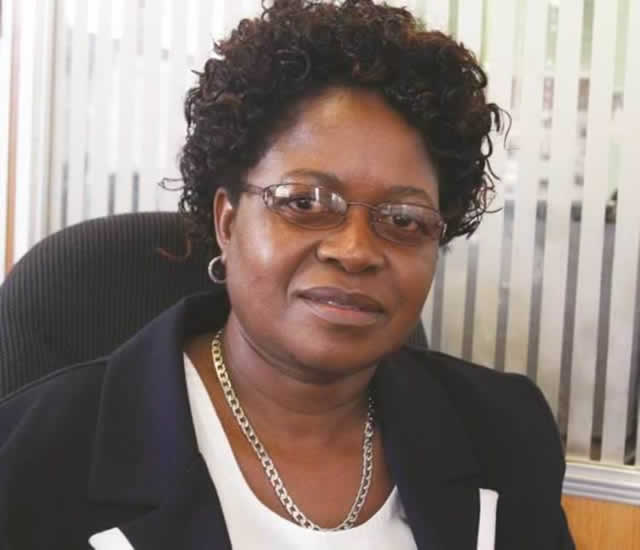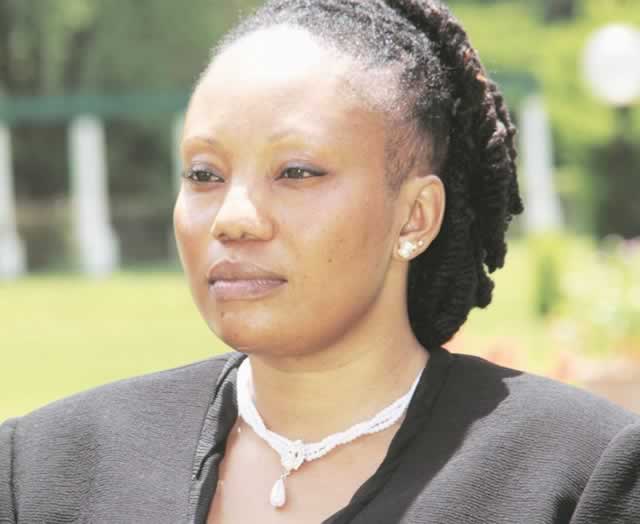Corruption: The ball is now in ZACC’s court


Auditor-General Mrs Mildred Chiri ‘s reports have implicated several Government instiutions, parastatals and councils in corrupt activities
Christopher Farai Charamba Correspondent
Mr Anti-Corruption Commissioner, Sir, where art thou? Not only has the press been active in its duties, but more so has the Office of the Auditor-General. Many audit reports have implicated government institutions, parastatals and councils in corrupt practices.
ISSUES of corruption have once again made their way into the headlines of the local press. On this occasion President Mugabe questioned Local Government, Public Works and National Housing Minister Saviour Kasukuwere about land initially earmarked for youth housing but was sold to Prophet Walter Magaya of the Prophetic Healing and Deliverance Ministries.
“Ko nyaya yevakomana yemastands iri kufamba sei?” the President asked. “Ndakanzwa kuti mastands makatengesa, makatengesera ananaMagaya. (What is going on with the stands? I heard you sold the stands. You sold them to Magaya).’’
Minister Kasukuwere refuted the claims stating that was not what transpired, claiming that our sister paper, The Sunday Mail, had fabricated the story.
The Sunday Mail alleged that Harare youths had been muscled out of a planned residential development at Chishawasha B Farm.
Youths were allocated 300 hectares of the 2 848,77ha farm that lies along Arcturus Road.
The offer, according to sources, had been withdrawn under unclear circumstances amid reports that some bigwigs were using shelf companies to mask their allocations.
As at July 26, according to documents from the Local Government Ministry’s State Land Management section, Chishawasha B had been allocated as follows: Udcorp 1 000ha; National Housing Fund 378ha; Harare youths 300ha; Homelink 200ha; Twinbag Investments, N-Frays Infrastructure, Farmtel Investments (Cde Terrence Mukupe), Nettfields Investments (Pvt) Ltd and Mahlaba (Pvt) Ltd (100ha each); Elephant Trust (linked to a Cabinet minister) 70ha; and Zimshelter, Washtrom, Denrock Investments (Cde Kudzai Chipanga) and Casewood (Cde Tongai Kasukuwere) (50ha each).
It is understood that some of these firms are linked to Cdes Betty Kaseke, Sarah Mahoka, Innocent Hamandishe and Shadreck Mashayamombe.
Farmtel, Denrock, Casewood and Cde Kaseke reportedly signed memoranda of agreement with the Local Government Ministry to develop the land on July 29.
Around that same time, Prophet Walter Magaya’s Planet Africa is said to have signed a memorandum of agreement with the ministry for 300ha.
Documents indicate Planet Africa paid a deposit of US$100 000 on August 10.
On August 17, Minister Kasukuwere withdrew all offer letters except for Planet Africa.
It is alleged that Planet Africa was subsequently offered land reserved for youths, with some quarters speaking of an “improper relationship” between the minister and the Prophet.
What is worrying is that the President has time and time again spoken on the issue of corruption and the need for it to be rooted out.
In fact, last weekend at the National Youth Assembly meeting, while speaking about stands to be allocated to the youths, the President said:
“We also would also want to guard against corruption with regard stand distribution. Kwete kutengwa, munhu apihwe stand, aiwa. Kana kuti ‘ndipe mari yakati ndigokupa stand’ (kana) kukurumidza kukupa, aiwa. We don’t want that.”
How ironic that that which the President was speaking against is what was allegedly transpiring.
This unfortunately is not the only corruption incident to make headlines this week.
On Wednesday The Herald reported that former State Procurement Board chairperson Mr Charles Kuwaza was facing arrest after the new board reported him to the police for alleged criminal abuse of office during his tenure bordering on tax evasion and unauthorised allowances.
Mr Kuwaza is alleged to have earned hundreds of thousands of dollars since 2009 in salary and benefits but did not remit his Pay As You Earn to the Zimbabwe Revenue Authority.
Mr Anti-Corruption Commissioner, Sir, where art thou? On numerous occasions the press has reported issues of corruption, shady dealings and incidents that would warrant an investigation and yet there has been none.
Not only has the press been active in its duties, but more so has the Office of the Auditor-General. Many audit reports have implicated Government institutions, parastatals and councils in corrupt practices.
Unfortunately, the Auditor-General does not have any prosecutorial power, perhaps her office would be more inclined to get to the bottom of all their audit reports.
Chapter 13 of the Constitution of the Republic of Zimbabwe refers to Institutions to Combat Corruption and Crime. In Article 255 the functions of the Zimbabwe Anti-Corruption Commission are outlined. Some of the key functions are as follows;
(1)(a) to investigate and expose cases of corruption in the public and private sector; (b) to combat corruption, theft misappropriation, abuse of power and other improper conduct in the public and private sector; (e) to direct the Commissioner-General of Police to investigate cases of suspected corruption and report to the Commission on the results of such investigation; (f) to refer matters to the National Prosecuting Authority for prosecution.
The Constitution goes on to state: “The Commissioner-General of the Police must comply with any directive given to him or her by the Zimbabwe Anti-Corruption Commission under subsection (1)(e).”
Recently, ZACC said that it wanted prosecutorial powers to aid it in its efforts to effectively fight corruption.
“Our mandate is to investigate and take people to court. We want independent arresting powers because at the moment, our arrest is done in conjunction with the police. We also want prosecutorial powers. We are advocating for special courts to enable us to do our prosecution,” said ZACC spokesperson Ms Phyllis Chikundura.
One sees no reason why the ZACC should be given more powers unless what the ZACC is trying to say is that their efforts in combating corruption have failed because they do not have these powers.
The Constitution clearly states that the Commissioner-General of the Police must comply with any directive given by the ZACC. Why then would the ZACC need arresting powers? Have the police refused to comply with ZACC? Has the National Prosecuting Authority refused to prosecute anyone referred by ZACC?
The law is clear on what the role of ZACC is and now it is more necessary than ever that for this constitutionally mandated body fulfil this role.
Where it comes up short then the Government as outlined in the Constitution “must ensure, through legislative and other means, that ZACC has power to recommend the arrest and secure the prosecution of persons reasonably suspected of corruption, abuse of power and other improper conduct which falls within the Commission’s jurisdiction”.
Mr Anti-Corruption Commissioner, Sir, the ball is in your court. There are numerous cases that one could suggest for investigation from the alleged sale of land to Prophet Magaya, the millions of dollars’ worth of tenders that Zesa Holdings awarded to Pito Investments or the $5 million that Zibabwe Power Company paid to Intratek in the absence of a bank guarantee to protect public funds.
Corruption is destructive to any society. It benefits the few often at the expense of the many. If it is not dealt with severely then the people of Zimbabwe will continue to be the overall victims. Now more than ever, ZACC is needed to root our corruption in Zimbabwe.









Comments